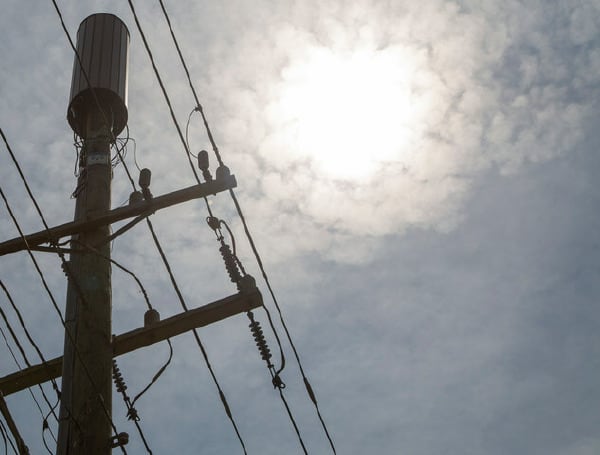TFP File Photo State Supreme Court justices Wednesday questioned whether regulators adequately justified the approval of a settlement that increas
State Supreme Court justices Wednesday questioned whether regulators adequately justified the approval of a settlement that increased base electric rates for Florida Power & Light.
The Supreme Court heard arguments in two challenges to the Florida Public Service Commission’s approval in late 2021 of the four-year settlement, which began increasing FPL customers’ rates last year.
FPL reached the settlement with the state Office of Public Counsel, which represents consumers in utility issues, and other parties including the Florida Retail Federation, the Florida Industrial Power Users Group and the Southern Alliance for Clean Energy.
In the news: Florida Citrus Forecast Takes Another Hit
But groups that were not part of the settlement filed legal challenges, arguing that it was not in the “public interest” and contending that some parts of the agreement violated state law.
During Wednesday’s hearing, Chief Justice Carlos Muniz and other justices questioned whether the Public Service Commission should have done more to justify approval of the settlement. Muniz also appeared to question whether it was a true settlement, as some parties were not included.
Muniz said that “at the end of the day, the PSC has the responsibility to set the rates.”
“The PSC can’t delegate to these (settling) parties just the responsibility to decide what’s in the public interest,” Muniz said in questioning commission attorney Douglas Sunshine. “So you still have the same obligations you would have had in the absence of a settlement agreement.”
As an example, Muniz and Justice John Couriel said the commission’s final order approving the settlement did not detail expansion of an FPL program known as SolarTogether. That program drew objections from parties that were not included in the settlement.
In the news: Florida Woman Wins $1 Million Powerball Prize Matching All 5 White Powerball Numbers
The program involves some customers paying more on their electric bills to help finance solar projects and then getting credits that result in a payback. Critics contend the program is unfair to other customers who don’t take part — a contention that FPL disputes.
“There’s no explanation whatsoever for the PSC’s thinking on how it got to approving this,” Muniz said. “From a judicial review perspective and from a matter of the PSC complying with its obligations, how can the order not address the major issues that are in dispute in a way that allows us to kind of have a window into what the rational process was that led to the finding that it was in the public interest?”
“I would submit that the commission’s final order … lays out all of the aspects that it found in the settlement agreement and provided the analysis that is within the final order,” Sunshine responded.
“But the chief (justice) is right, isn’t he, that the final order doesn’t talk about SolarTogether at all. Right? You concede that?” Couriel replied.
“I concede that,” Sunshine said. “But again, the parties, the signatories to the settlement agreement, they negotiated this document, and there’s a give and take in that process.”
Later, Daniel Nordby, an attorney for FPL, said the SolarTogether part of the settlement was a “change in magnitude, rather than a change in kind from the way that the pre-existing SolarTogether program was structured.”
In the news: Florida Gov. DeSantis “Freedom Is Here To Stay”
“What the commission was considering with SolarTogether in the context of this expansion proposed here was not the underlying authority to approve the program. Because that had been done in a prior order in 2020 that was not challenged,” Nordby said. “The commission was considering simply whether this expansion was fair, just and reasonable and in the public interest.”
The Supreme Court typically takes months to issue rulings after hearing arguments.
The group Floridians Against Increased Rates and a coalition of three other organizations, Florida Rising, the Environmental Confederation of Southwest Florida and the League of United Latin American Citizens of Florida filed the challenges at the Supreme Court. The cases were later consolidated.
Base-rate issues are closely watched, as they involve billions of dollars, make up large portions of customers’ monthly bills and help determine how much profit that utilities can earn.
FPL filed a base-rate proposal in early 2021 and ultimately reached the settlement, which includes numerous issues. After approval by the commission, the settlement led to a $692 million rate increase in January 2022 and another $560 million hike that took effect last month. The settlement also will allow increases in 2024 and 2025 to pay for solar-energy projects that are not part of the SolarTogether program.
Android Users, Click Here To Download The Free Press App And Never Miss A Story. Follow Us On Facebook Here Or Twitter Here. Signup for our free newsletter by clicking here.

